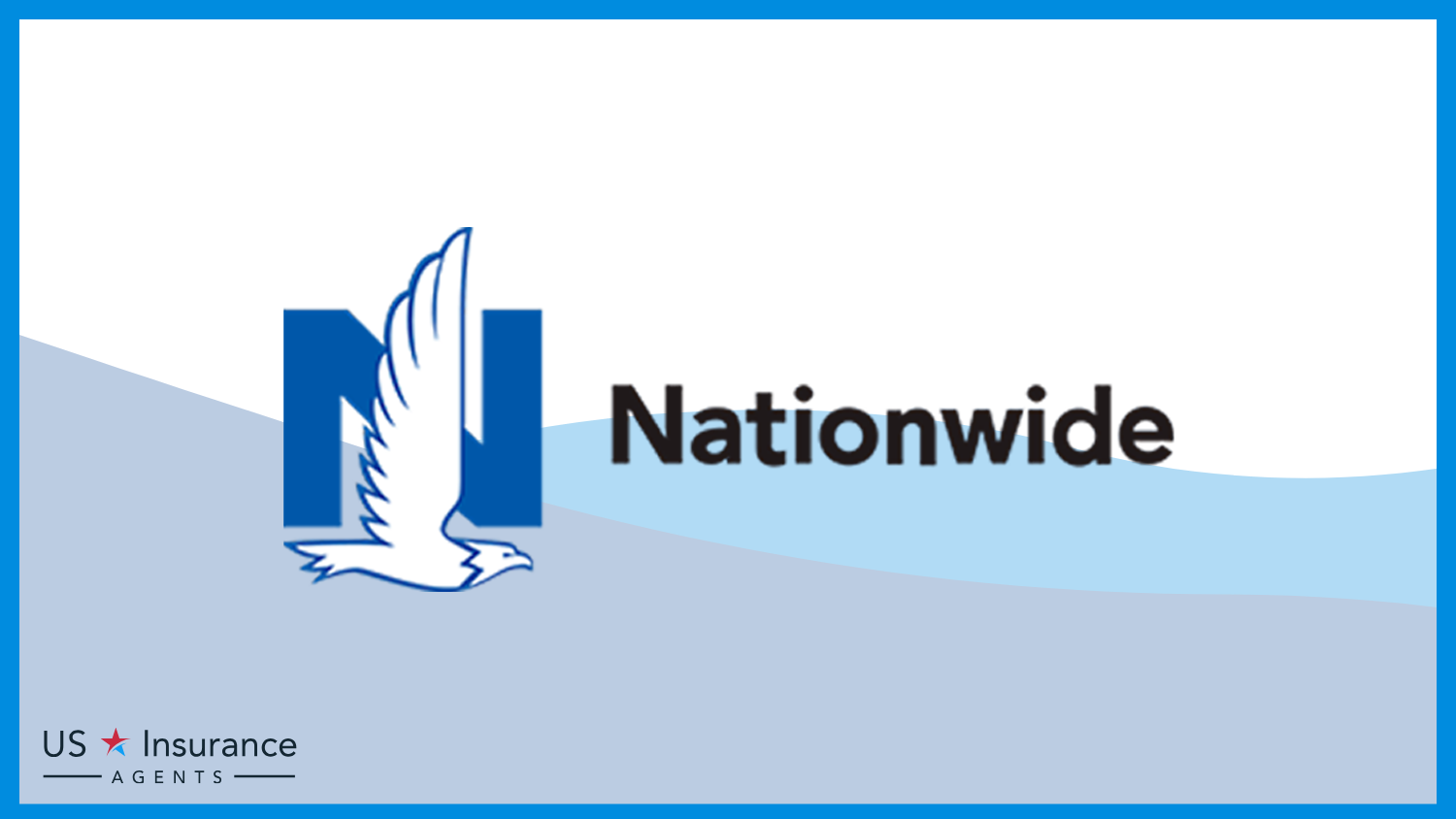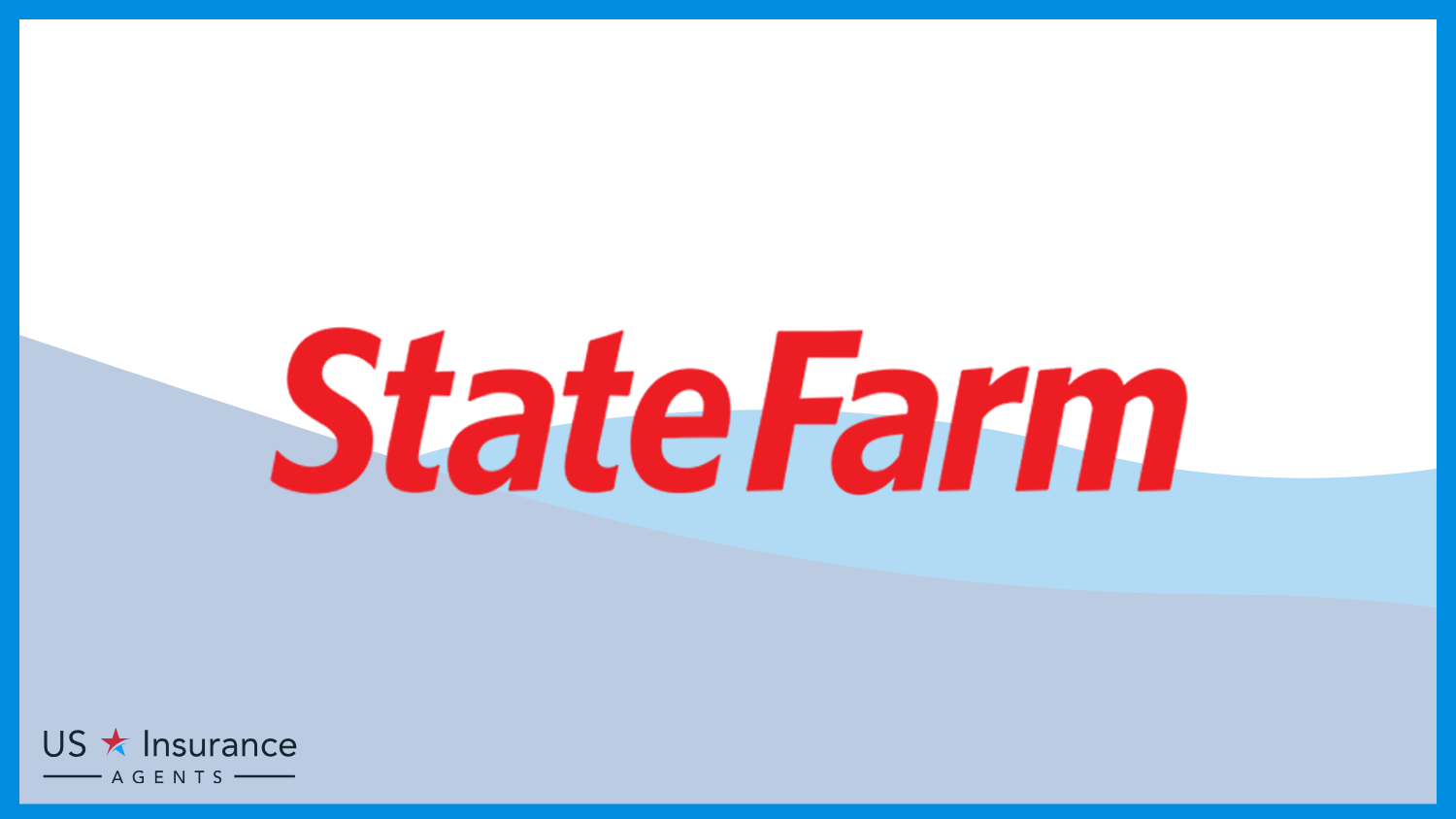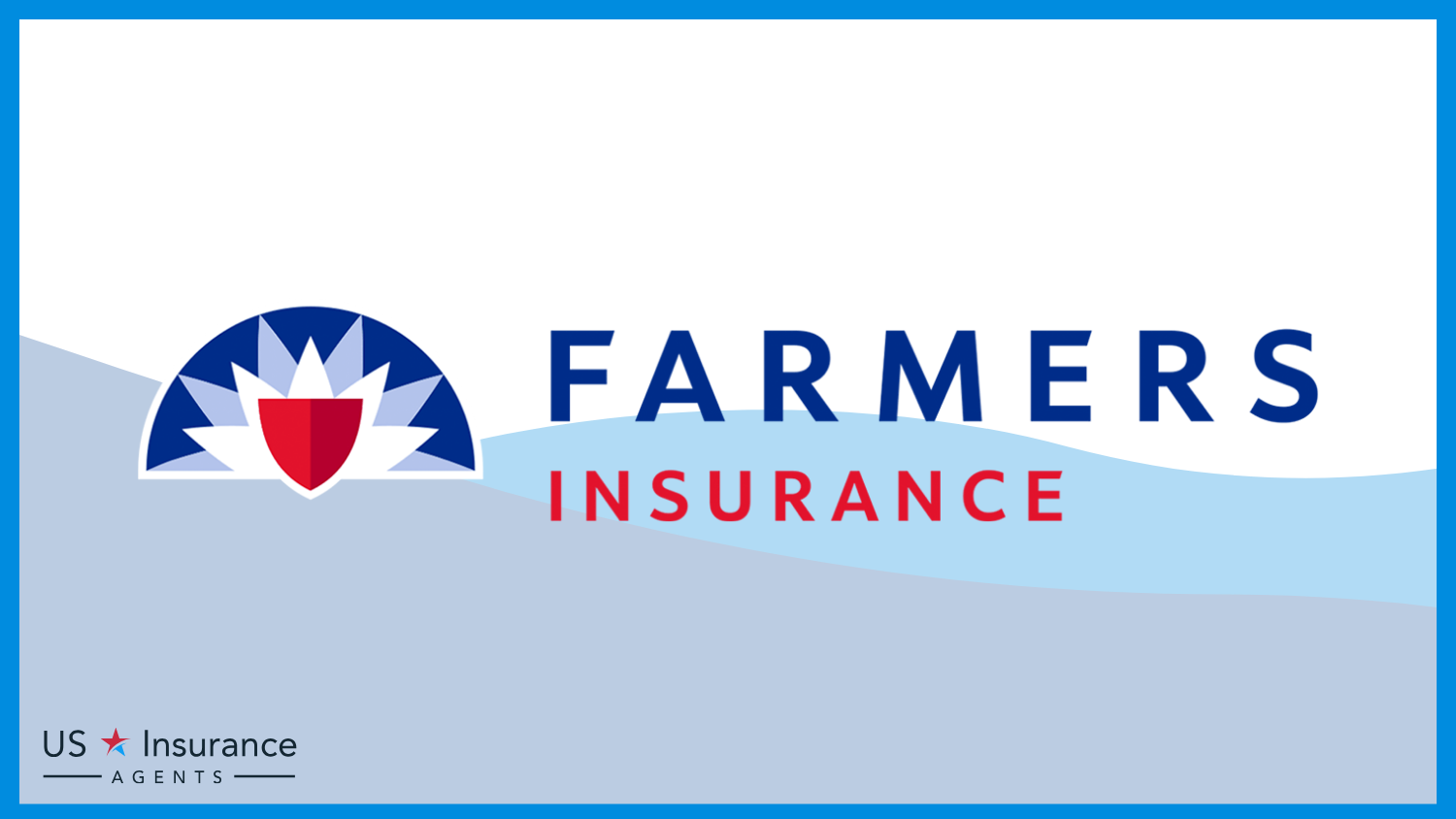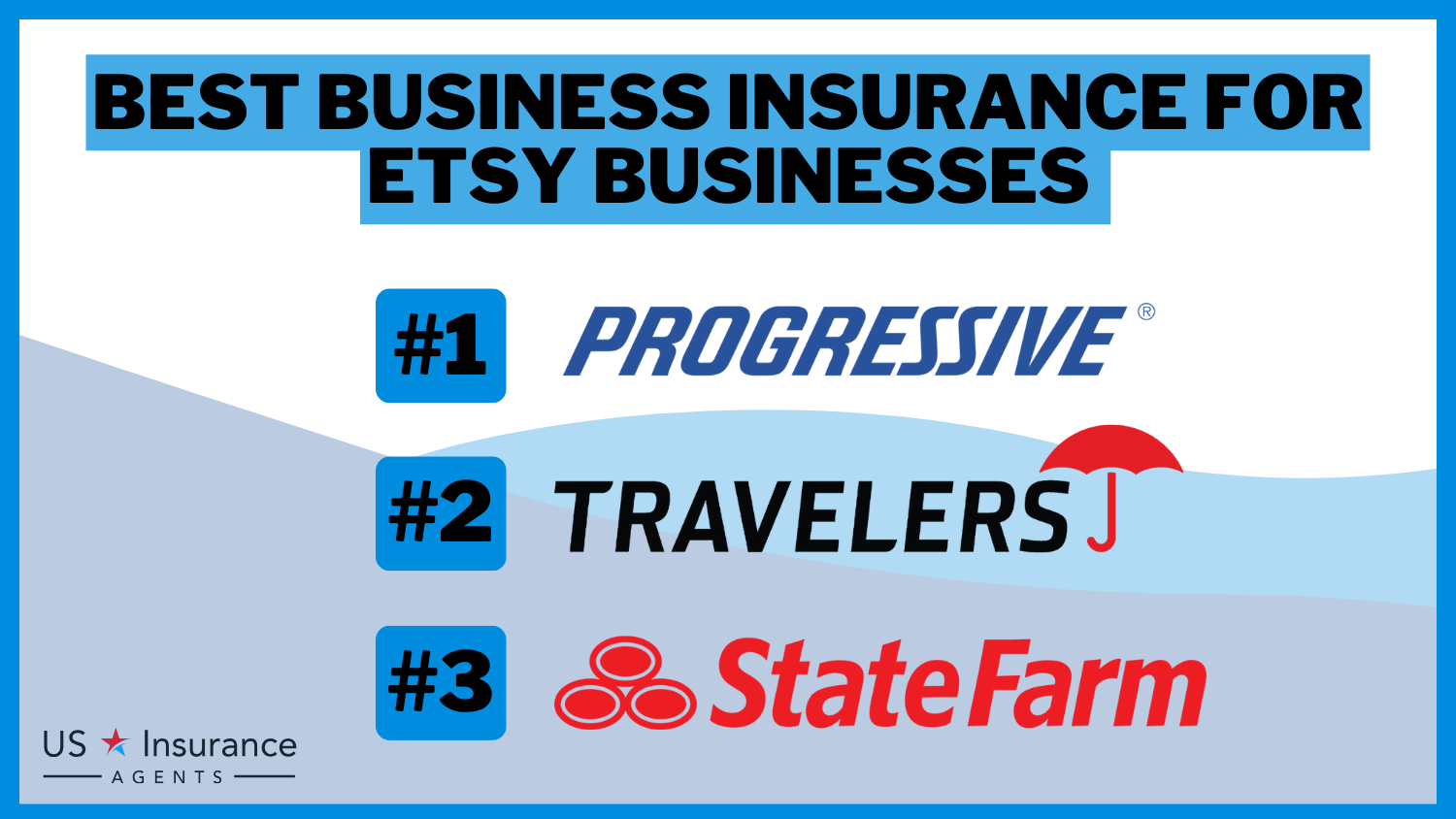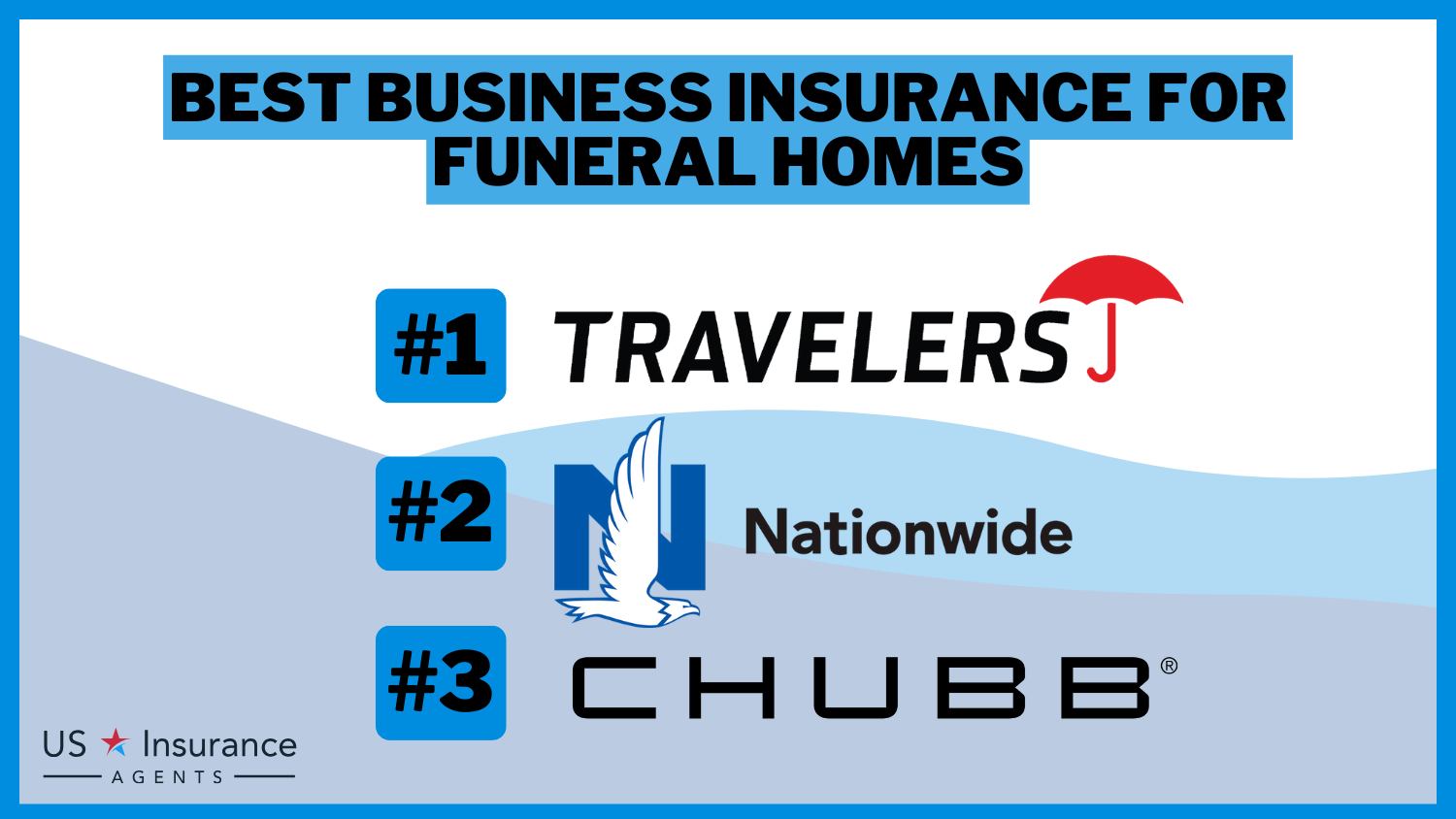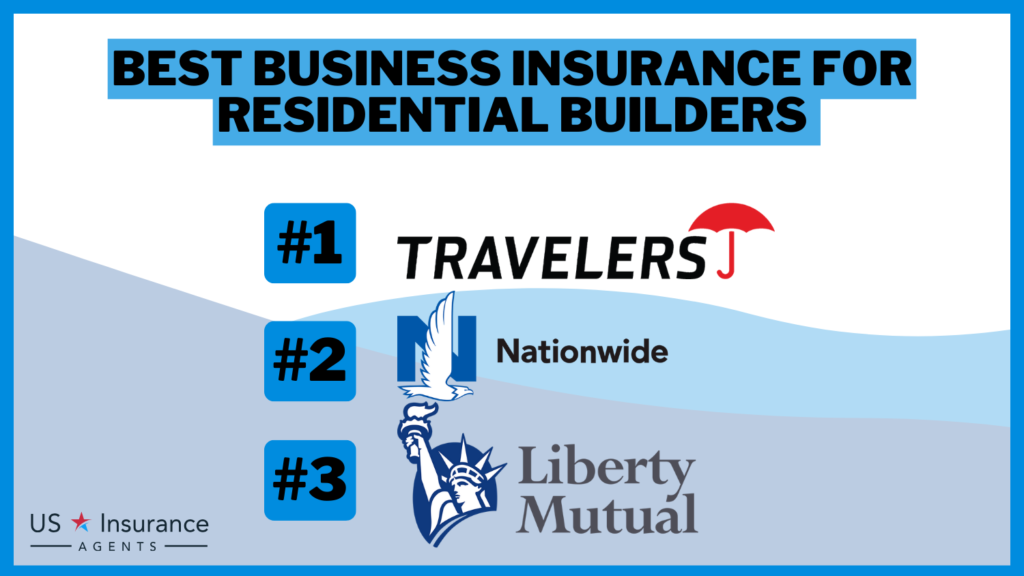Best Business Insurance for Beekeepers in 2026 (Your Guide to the Top 10 Providers)
Nationwide, USAA, and State Farm offer the best business insurance for beekeepers, a minimum coverage rate starting at $100, ensuring comprehensive coverage and significant savings. This essential protection provides peace of mind and financial security for your beekeeping operations.
Read more Secured with SHA-256 Encryption






Table of Contents
Table of Contents


Former Licensed Insurance Producer
Laura Berry has experience as a licensed producer selling life, health, and property insurance coverage for both Allstate and State Farm. She has dedicated many hours to helping her clients understand the insurance marketplace so they could find the best car, home, and life insurance products for their circumstances. While she currently helps businesses take advantage of the federal R&D tax...
Laura Berry


Sr. Director of Content
Sara Routhier, Senior Director of Content, has professional experience as an educator, SEO specialist, and content marketer. She has over 10 years of experience in the insurance industry. As a researcher, data nerd, writer, and editor, she strives to curate educational, enlightening articles that provide you with the must-know facts and best-kept secrets within the overwhelming world of insurance....
Sara Routhier


Licensed Insurance Agent
Kristine Lee is a licensed insurance agent and one of The Zebra’s in-house content strategists. With a background in copywriting, she covers the ins and outs of the home and car insurance industries. She has been a contributor to numerous publications focused on the nuances of insurance, including on The Points Guy.
Kristine Lee
Updated February 2025
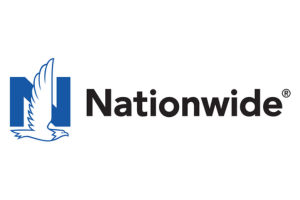 3,071 reviews
3,071 reviewsCompany Facts
Full Coverage for Beekeepers
A.M. Best
Complaint Level
Pros & Cons
 3,071 reviews
3,071 reviews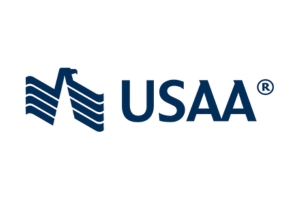 6,590 reviews
6,590 reviewsCompany Facts
Full Coverage for Beekeepers
A.M. Best
Complaint Level
Pros & Cons
 6,590 reviews
6,590 reviews 18,157 reviews
18,157 reviewsCompany Facts
Full Coverage for Beekeepers
A.M. Best
Complaint Level
Pros & Cons
 18,157 reviews
18,157 reviewsBoasting up to a 25% multi-policy discount, these industry-leading providers ensure beekeepers receive comprehensive coverage and significant savings, safeguarding their operations from potential risks.
Our Top 10 Company Picks: Best Business Insurance for Beekeepers
| Company | Rank | Multi-Policy Discount | Low-Mileage Discount | Best For | Jump to Pros/Cons |
|---|---|---|---|---|---|
 | #1 | 25% | 10% | Usage Discount | Nationwide |
| #2 | 10% | 20% | Military Savings | USAA | |
| #3 | 17% | 10% | Many Discounts | State Farm | |
 | #4 | 5% | 5% | Deductible Reduction | The Hartford |
| #5 | 10% | 10% | Accident Forgiveness | Travelers | |
 | #6 | 25% | 10% | Customizable Polices | Liberty Mutual |
| #7 | 25% | 30% | Add-on Coverages | Allstate | |
| #8 | 5% | 10% | Student Savings | Farmers | |
| #9 | 29% | 10% | Policy Options | American Family | |
| #10 | 25% | 10% | 24/7 Support | Erie |
These leading companies offer tailored coverage, from bee sting liabilities to property damage and business interruptions caused by events like severe weather, meeting beekeepers’ diverse needs.
Find the best commercial car and truck insurance for your business needs by entering your ZIP code above into our free comparison tool today.
#1 – Nationwide: Top Overall Pick
Pros
- Comprehensive Coverage: Nationwide offers comprehensive coverage, addressing a variety of customer needs, providing a robust solution for beekeepers.
- Usage Discount: Nationwide is recognized for its usage discount, making it an attractive option for businesses with specific usage patterns. Explore significant insurance savings by delving into our comprehensive Nationwide Insurance Review & Ratings.
- Discounts: Nationwide offers a range of discounts, including a maximum multi-policy discount of up to 25%, making it potentially cost-effective for beekeepers.
Cons
- Average Monthly Rate: The average monthly rate for good drivers with Nationwide is $115, which might be relatively higher compared to some competitors.
- Limited Information: The content doesn’t provide detailed information on specific coverage options, potentially leaving customers seeking more detailed policy information.
Free Health Insurance Comparison
Compare Quotes From Top Companies and Save
Secured with SHA-256 Encryption
#2 – USAA: Best for Military Savings
Pros
- Military Savings: USAA is recognized for its military savings, making it an ideal choice for beekeepers associated with the military. Check out insurance savings for military members and their families in our complete USAA Insurance Review & Ratings.
- Low Complaint Level: USAA maintains a low complaint level, indicating high customer satisfaction with its services.
- Competitive Rates: With an average monthly rate of $63 for good drivers, USAA offers competitive rates for business insurance.
Cons
- Limited Membership: USAA is limited to military members and their families, restricting access to a broader customer base.
- Availability: USAA may not be available to all individuals, depending on military affiliation, potentially limiting options for non-military beekeepers.
#3 – State Farm: Best for Many Discounts
Pros
- Many Discounts: State Farm beekeeping insurance is known for offering many discounts, providing opportunities for beekeepers to reduce their insurance costs.
- Diverse Coverage Options: State Farm provides a range of coverage options, catering to the diverse needs of beekeeping businesses. Unlock details about State Farm insurance review & ratings.
- Competitive Average Monthly Rate: With an average monthly rate of $86 for good drivers, State Farm offers competitive rates.
Cons
- Limited Information: The content does not provide detailed insights into specific coverage options, potentially leaving customers with questions about available policies.
- Discount Limitations: While State Farm offers many discounts, the content does not specify the conditions or limitations of these discounts, requiring potential customers to inquire for more details.
#4 – The Hartford: Best for Deductible Reduction
Pros
- Deductible Reduction: The Hartford is recognized for offering a deductible reduction option, providing potential cost savings for beekeepers in the event of a claim.
- Established Company: The Hartford is an established insurance company, which may instill confidence in beekeeper insurance regarding its reliability and financial stability.
- A.M. Best Rating: The company has received an unspecified A.M. best rating, indicating a level of financial strength. Navigate through the in-depth examination of Hartford insurance review & ratings.
Cons
- Limited Discounts: The content does not provide detailed information on the range of discounts offered by The Hartford, potentially limiting opportunities for cost savings.
- Usage Information: Specifics regarding how well The Hartford caters to the unique needs of beekeepers, such as usage patterns, are not detailed in the content.
Free Health Insurance Comparison
Compare Quotes From Top Companies and Save
Secured with SHA-256 Encryption
#5 – Travelers: Best for Accident Forgiveness
Pros
- Accident Forgiveness: Travelers offers accident forgiveness, providing a valuable feature for beekeepers concerned about the impact of accidents on their insurance rates.
- Competitive Discounts: Travelers provides competitive discounts, including a maximum multi-policy discount of up to 10%, enhancing the affordability of their insurance plans.
- A.M. Best Rating: Travelers has received an unspecified A.M. best rating, indicating a level of financial strength. Explore the comprehensive evaluation of Travelers insurance review & ratings.
Cons
- Limited Information: The content does not provide extensive details on specific coverage options, potentially leaving beekeepers seeking more detailed policy information.
- Average Monthly Rate: The average monthly rate for good drivers with Travelers is not provided in the content, making it challenging to assess its affordability in comparison to other companies.
#6 – Liberty Mutual: Best for Customizable Polices
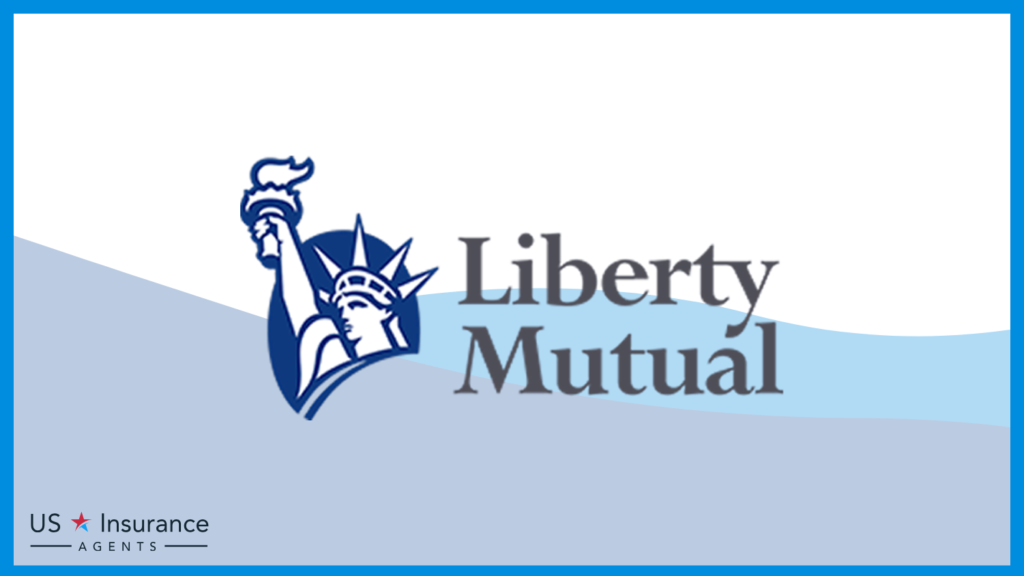
Pros
- Customizable Policies: Liberty Mutual is known for providing customizable policies, allowing beekeepers to tailor their coverage to meet their specific business needs.
- Competitive Discounts: With a maximum multi-policy discount of up to 25%, Liberty Mutual offers competitive discounts, potentially reducing insurance costs for beekeepers.
- A.M. Best Rating: Liberty Mutual has received an unspecified A.M. best rating, indicating a level of financial strength. Explore specifics in our Liberty Mutual Review & Ratings.
Cons
- Usage Information: The content does not provide specific details on how well Liberty Mutual caters to the unique needs of beekeepers, such as usage patterns.
- Average Monthly Rate: The average monthly rate for good drivers with Liberty Mutual is not provided in the content, making it challenging to assess its affordability in comparison to other companies.
#7 – Allstate: Best for Add-On Coverages

Pros
- Add-On Coverages: Allstate is recognized for offering various add-on coverages, allowing beekeepers to enhance their insurance policies based on their specific requirements.
- Competitive Discounts: With a maximum multi-policy discount of up to 25% and a low complaint level, Allstate provides competitive rates and good customer satisfaction.
- A.M. Best Rating: Allstate has received an unspecified A.M. best rating, indicating a level of financial strength. Further details are provided in our Allstate Insurance Review & Ratings.
Cons
- Limited Information: The content does not provide extensive details on specific coverage options and limitations, potentially leaving beekeepers with questions about policy details.
- Complaint Level: While the overall complaint level is low, the specific nature of the complaints is not detailed in the content, leaving potential concerns about the quality of service unaddressed.
Free Health Insurance Comparison
Compare Quotes From Top Companies and Save
Secured with SHA-256 Encryption
#8 – Farmers: Best for Student Savings
Pros
- Student Savings: Farmers is recognized for offering student savings, providing potential cost savings for beekeepers who may have student drivers in their business operations.
- A.M. Best Rating: Farmers insurance review & ratings reveal that Farmers has received an unspecified A.M. best rating, indicating a level of financial strength.
- Competitive Discounts: With a maximum multi-policy discount of up to 5%, Farmers provides competitive discounts, potentially reducing insurance costs.
Cons
- Limited Information: The content does not provide extensive details on specific coverage options and limitations, potentially leaving beekeepers with questions about policy details.
- Average Monthly Rate: The average monthly rate for good drivers with Farmers is not provided in the content, making it challenging to assess its affordability in comparison to other companies.
#9 – American Family: Best for Policy Options

Pros
- Policy Options: American Family is known for offering a variety of policy options, allowing beekeepers to choose coverage that aligns with their unique needs.
- Competitive Discounts: With a maximum multi-policy discount of up to 29%, American Family provides competitive rates and potential cost savings.
- A.M. Best Rating: American Family has received an unspecified A.M. best rating, indicating a level of financial strength. Delve deeper into American Family insurance review & ratings.
Cons
- Limited Information: The content does not provide extensive details on specific coverage options and limitations, potentially leaving beekeepers with questions about policy details.
- Usage Information: The content does not specify how well American Family caters to the unique needs of beekeepers, such as usage patterns.
#10 – Erie: Best for 24/7 Support
Pros
- 24/7 Support: Erie offers 24/7 support, providing beekeepers with assistance and service whenever they need it.
- Competitive Discounts: With a maximum multi-policy discount of up to 25%, Erie provides competitive rates and potential cost savings.
- A.M. Best Rating: Erie has received an unspecified A.M. best rating, indicating a level of financial strength. Unlock details in our Erie Insurance Review & Ratings.
Cons
- Limited Information: The content does not provide extensive details on specific coverage options and limitations, potentially leaving beekeepers with questions about policy details.
- Average Monthly Rate: The average monthly rate for good drivers with Erie is not provided in the content, making it challenging to assess its affordability in comparison to other companies.
Free Health Insurance Comparison
Compare Quotes From Top Companies and Save
Secured with SHA-256 Encryption
Exploring the Price of General Liability Insurance for Beekeeping Businesses
Understanding the cost of general liability insurance is crucial for budgeting and financial planning. The insurance cost can vary based on several factors specific to your beekeeping business. Here are some key factors that can influence the cost of general liability insurance:
- Business Size: The size of your beekeeping operation, including the number of hives, employees, and annual revenue, can affect the cost of insurance. More extensive operations generally have higher insurance premiums due to increased risk exposure.
- Location: Insurance rates can vary based on the geographic location of your beekeeping business. Factors such as local weather patterns, proximity to urban areas, and historical claims data for your site can impact the cost of insurance.
- Coverage Limits: The coverage limits you choose for your general liability insurance policy will affect the cost of premiums. Higher coverage limits typically result in higher premiums.
- Risk Assessment: Insurers assess the risks associated with your beekeeping operations to determine the insurance cost. Factors such as aggressive bee species, safety protocols, and history of claims or incidents can influence the premium.
- Deductibles: The deductible is the amount you must pay out of pocket before the insurance coverage. Choosing a higher deductible can lower your premium but also means you would bear a larger share of the costs in the event of a claim. For a more thorough understanding, delve into our source article titled “What is Annual deductible combined?“
It’s important to note that the cost of general liability insurance for beekeeping businesses can range from $400 to $1,500 per year for $1 million in coverage. However, these figures are just averages, and the actual cost can vary significantly based on the abovementioned factors.
Beekeepers Business Insurance Monthly Rates by Provider & Coverage Level
| Insurance Company | Minimum Coverage | Full Coverage |
|---|---|---|
| $110 | $225 | |
| $98 | $200 | |
 | $95 | $190 |
| $102 | $205 | |
 | $98 | $195 |
 | $95 | $190 |
| $100 | $200 | |
 | $105 | $210 |
| $92 | $185 | |
| $90 | $180 |
The table above displays monthly rates for beekeepers’ business insurance, categorized by coverage type. It highlights variations among insurance companies, with USAA offering the lowest minimum coverage at $690 and the most competitive full coverage rate at $2,898. While rates differ, beekeepers should prioritize coverage extent alongside cost when selecting an insurer to ensure comprehensive protection for their operations.
Additionally, bundling general liability insurance with other essential coverages through a Business Owner’s Policy (BOP) can save costs for beekeepers. Obtaining quotes from multiple insurers and reviewing coverage details is essential for determining precise insurance costs.
The Importance of General Liability Insurance for Beekeeping Businesses
General liability insurance is a fundamental component of insurance coverage for beekeeping businesses. It provides crucial protection against various risks and potential liabilities during your operations. Here are some critical aspects of understanding general liability insurance for beekeeping businesses:
- Property Damage: This coverage applies when business activities damage someone else’s property. For example, if your beekeeping equipment accidentally causes injury to a customer’s property during a hive installation, general liability insurance would help cover the repair or replacement costs.
- Personal Injury: Personal injury coverage applies to non-employee bodily harm, like a farm visitor getting stung by a bee. General liability insurance covers medical expenses, legal defense, and settlements if your business is liable.
- Product Liability: Beekeeping businesses that produce and sell honey, beeswax, or other bee-related products face the risk of product liability claims. If a customer alleges that your product caused harm, such as an allergic reaction or illness, general liability insurance would protect your business by covering legal expenses and potential damages.
General liability insurance is essential for beekeeping businesses due to the unique risks associated with working with bees and operating a farm. Bee stings, allergic reactions, property damage caused by beekeeping equipment, and claims related to product quality are all potential hazards beekeepers face. For a deeper comprehension, delve into our source article titled “Commercial General Liability (CGL) Insurance: A Complete Guide”.
Jeff Root Licensed Life Insurance Agent
Without proper insurance coverage, these risks can lead to significant financial loss, legal expenses, and reputational damage to your business.
Exploring Additional Insurance Options for Beekeeping Businesses
While general liability insurance forms the core of your coverage, beekeeping businesses may also benefit from additional insurance policies to enhance their protection. Some key coverages to consider include:
- Commercial Property Insurance: This policy protects your beekeeping equipment, hives, inventory, and structures from perils such as fire, theft, vandalism, or severe weather events, including exploring the pros and cons of fulfilled interest fire insurance.
- Business Interruption Insurance: Beekeeping businesses heavily rely on the ongoing productivity of their bee populations. If a disaster, such as a natural catastrophe or equipment failure, interrupts your business operations, business interruption insurance covers lost income, ongoing expenses, and the costs of getting your business back on track.
- Product Liability Insurance: Since beekeeping businesses produce and sell products derived from bees, such as honey, beeswax candles, or skincare products, product liability insurance is essential. It safeguards your business if a customer alleges that your product caused harm or failed to meet safety standards.
- Home-Based Business Insurance: Standard homeowners insurance may not cover business-related liabilities if you operate your beekeeping business from your home premises. Home-based business insurance offers liability protection for accidents or injuries on your property due to business activities.
By considering these additional coverages, you can customize your insurance package to address the specific risks your beekeeping business faces and ensure comprehensive protection.
Free Health Insurance Comparison
Compare Quotes From Top Companies and Save
Secured with SHA-256 Encryption
Obtaining Online Quote for Beekeeping Business
When seeking insurance coverage for your beekeeping business, obtaining an online quote can be a convenient and efficient way to explore your options. However, it’s essential to navigate this process thoughtfully to ensure you receive tailored coverage that meets the unique needs of your agricultural venture. Here’s how to do it effectively:
- Research insurers. Identify insurers with experience in agricultural businesses, especially beekeeping, to ensure they understand your unique needs.
- Request quotes. Utilize user-friendly online tools provided by specialized insurers to input your information and receive customized insurance quotes online instantly.
- Customize coverage. Take advantage of customization features to tailor coverage according to the specific risks and challenges faced by your beekeeping operations.
- Verify stability. Before finalizing your decision, ensure the insurer is financially stable and known for responsive customer service.
- Compare options. Evaluate quotes from multiple insurers, considering both premiums and coverage provided, to determine the best value for your beekeeping business.
By following these steps, you can efficiently obtain an online quote for your beekeeping business insurance, ensuring comprehensive coverage tailored to your specific needs. When seeking insurance for your beekeeping business, it’s crucial to find a provider understanding agricultural needs.
Two types of insurers are available: traditional ones, offering general coverage, and specialized ones, focusing on agricultural businesses like beekeeping. Factors to consider include expertise, customization options, financial stability, and customer service. Research and compare quotes to find the ideal provider for your beekeeping venture.
Case Studies: Beekeeper Success Stories
Delve into practical illustrations illuminating the critical importance of securing proper insurance coverage for beekeepers. Through these narratives, we explore real-life scenarios, demonstrating how various insurance policies offer essential protection and financial reassurance in the face of adversity for beekeeping ventures.
- Case Study #1 – Property Damage Coverage: John’s beekeeping equipment and hives suffered severe storm damage. His commercial property and business interruption insurance enabled quick compensation and covered lost income, ensuring prompt operations restoration.
- Case Study #2 – Product Liability Coverage: Sarah faced a customer’s allergic reaction claim to her skincare product. Her product liability insurance covered legal costs and potential settlements, offering peace of mind amid the lawsuit threat.
- Case Study #3 – General Liability Coverage: Mark’s beekeeping farm visitor experienced a severe allergic reaction. Mark’s general liability insurance swiftly addressed the claim, covering legal costs and safeguarding his business’s financial stability.
It becomes abundantly clear that insurance stands as a cornerstone in the beekeeping industry. Through these real-life examples, we’ve witnessed firsthand how insurance policies serve as a lifeline, offering crucial protection and financial security in the face of unforeseen challenges.
Laura Walker Former Licensed Agent
By learning from these experiences, beekeepers gain invaluable insights into the paramount importance of comprehensive coverage. Armed with this knowledge, they can proactively fortify their businesses against potential risks, fostering resilience and ensuring the enduring success of their operations for years to come.
Overall: Protect Your Beekeeping Business With Comprehensive Insurance Coverage
In conclusion, securing appropriate insurance coverage is crucial for the success and protection of your beekeeping business. General liability insurance forms the foundation of your coverage, addressing risks such as property damage, personal injury, and product liability.
However, it is essential to consider additional coverages like commercial property insurance, business interruption insurance, product liability insurance, and home-based business insurance to ensure comprehensive protection.
By choosing the right insurance provider, understanding the cost factors, and assessing the specific risks of your beekeeping operations, you can tailor your insurance package to meet your business’s unique needs. Additionally, implementing safety measures, maintaining proper documentation, and consulting with legal and insurance professionals further enhance your risk management strategies.
By prioritizing insurance and adopting a comprehensive approach to risk mitigation, you can safeguard your beekeeping business, minimize financial losses, and confidently pursue growth opportunities. Ready to find the best fleet insurance? Enter your ZIP code in our comparison tool below to see affordable commercial insurance rates in your area.
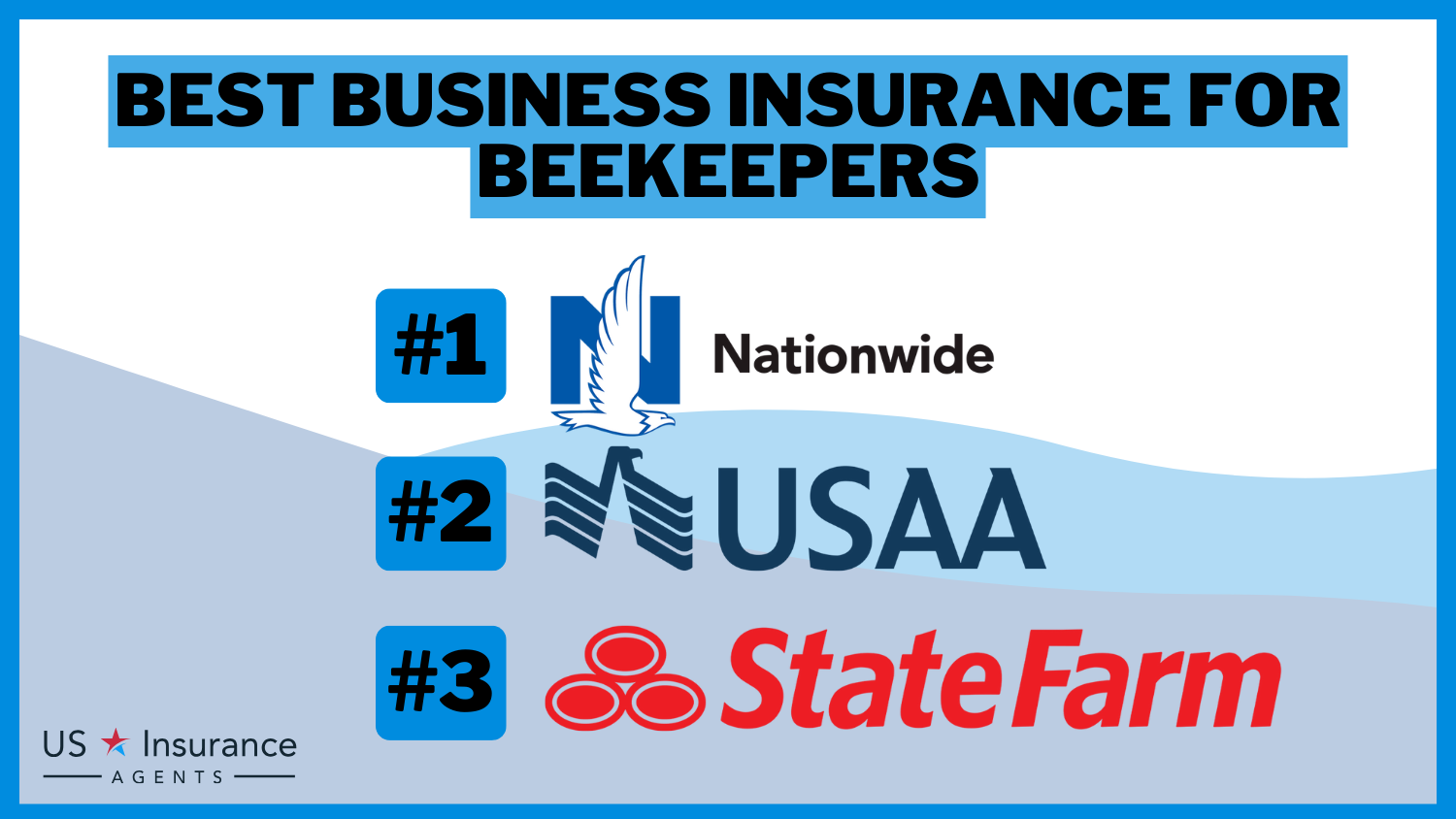
Frequently Asked Questions
Why is general liability insurance important for beekeeping businesses?
General liability insurance protects beekeepers from risks like bee stings, property damage, and product claims. Without it, businesses face financial loss and legal issues.
For a comprehensive overview, explore our detailed resource titled “Your Insurance Agent’s Role in the Claims Process.”
What additional insurance options should beekeeping businesses consider?
Consider commercial property, business interruption, product liability, and home-based business insurance for comprehensive coverage.
Cheap commercial insurance coverage is just a click away. Insert your ZIP code into our free tool below to compare quotes from highly rated insurers.
What factors influence the cost of general liability insurance for beekeeping businesses?
Cost varies based on factors like business size, employee count, coverage limits, location, and claims history. On average, it ranges from $400 to $1,500 per year.
Are there any specific safety measures beekeepers should take to complement insurance coverage?
Yes, beekeepers should implement safety measures, maintain proper documentation, and adhere to industry best practices. Combining insurance with proactive measures enhances risk management strategies for long-term business success.
What specific risks does beekeeping insurance cover?
Beekeeping insurance typically covers a range of risks unique to beekeeping, such as hive theft, queen bee loss, and environmental damage to hives. It also addresses more common business risks, including liability for third-party injuries and property damage.
To delve deeper into personal injury protection insurance, explore our comprehensive guide on “Personal Injury Protection (PIP) Insurance: A Complete Guide“.
Can beekeeping insurance policies be customized for small-scale beekeepers?
Yes, insurance providers often offer customizable policies that cater to the specific needs and scale of your beekeeping operation, whether you’re a hobbyist, a small-scale commercial beekeeper, or running a large beekeeping enterprise.
How does workers’ compensation insurance apply to beekeeping businesses?
Workers’ compensation insurance is crucial for beekeeping businesses with employees. It covers medical expenses, lost wages, and rehabilitation costs for employees who get injured on the job, including bee stings or other beekeeping-related incidents.
How do I select the ideal insurance provider for my beekeeping business?
Choose an insurer with agricultural industry expertise, customization options, financial stability, and good customer service. Compare quotes for the best fit. (Read more: How To Get Free Insurance Quotes Online)
Are there insurance policies that cover beekeeping equipment and transportation?
Yes, there are policies available that cover beekeeping equipment, including hives, extraction equipment, and bee suits, as well as coverage for the transportation of bees and equipment from one location to another. This coverage extends to apiary transport insurance, bee transport insurance, and bee transport liability coverage for bee transport.
How can beekeepers ensure they are fully protected against product liability claims?
Beekeepers can protect against product liability claims by securing a product liability insurance policy. This type of insurance can cover legal fees, settlements, and medical costs if a consumer claims harm from a beekeeping product, such as honey or beeswax.
Does beekeeping insurance cover environmental damage to bee populations, such as pesticide exposure?
How do beekeeping businesses benefit from business interruption insurance?
Can beekeeping insurance policies include coverage for legal defense costs?
What steps should beekeepers take to file an insurance claim in the event of a loss or damage?
Is beekeeping profitable in the Philippines?
Get a FREE Quote in Minutes
Insurance rates change constantly — we help you stay ahead by making it easy to compare top options and save.

